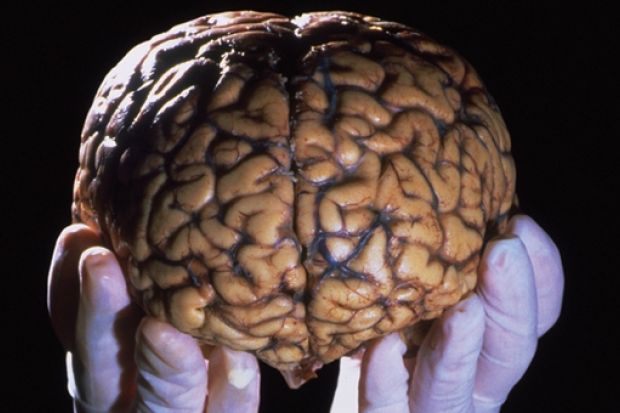The Brain Season
BBC Radio 4, from 7 November and through the month
"What one 17th-century philosopher disparagingly described as 'a bowl of curds' is now considered the most elaborate object in the known universe." That is the bold opening claim of a new 10-part series, A History of the Brain, with which Geoff Bunn - an affiliate member of Manchester Metropolitan University's Research Institute for Health and Social Change - launches Radio 4's Brain Season (7 November, 1.45pm).
It starts with the ancient Egyptian text that probably represents the first recorded description of the brain in human history, explores some of the landmarks in the 5,000-year story of how "we embarked on discovering its secrets" and argues that "all human societies have understood the brain in their own unique ways". But although science has now illuminated the "fizzing electrochemical reactions" that make up to 100 trillion connections possible at any one time, Dr Bunn reminds us that "consciousness is usually experienced as a unified whole. How the mind emerges from the brain's breathtaking complexity remains a complete mystery."
The first part of this series is followed by The Lobotomists (7 November, 8pm), where Hugh Levinson marks the 75th anniversary of the first American lobotomy, performed by an ambitious young neurologist called Walter Freeman who went on to carry out as many as 10 or more a day. The Portuguese doctor who pioneered the procedure and Freeman's English equivalent, the celebrated neurosurgeon Sir Wylie McKissock, also come under close scrutiny.
To shatter some of the commonest Mind Myths (8 November, 9pm), presenter Claudia Hammond has turned to the academy to "assemble a crack team of brain scientists...and no-nonsense mind-myth slayers". Sophie Scott, a professor at University College London's Institute of Cognitive Neuroscience, recalls a first-aider who told her that "head injuries aren't too serious, because we use only 10 per cent of our brains" and draws on work with imaging scanners to demonstrate that there aren't vast continents of "unused territory sitting there inert. Just clenching your hand uses much more than 10 per cent of your brain." Others give similarly short shrift to the myths that "listening to Mozart makes you more intelligent", that "a full moon increases the incidence of abnormal behaviour" and that breathing through one's left nostril can release the creativity in the right side of the brain.
Finally, in Brain Culture: Neuroscience and Society (three successive weeks from 15 November, 4pm), Matthew Taylor considers how a new understanding of our brains could transform our systems of law, education and political control. With surgeons now able to "cure" paedophilia, brain scans being used in court to convict murderers, and the adoption of electronic games as educational tools, not to mention marketeers using science to bypass our conscious minds, the programmes offer a gripping guided tour of much strange and often unsettling new work.
Register to continue
Why register?
- Registration is free and only takes a moment
- Once registered, you can read 3 articles a month
- Sign up for our newsletter
Subscribe
Or subscribe for unlimited access to:
- Unlimited access to news, views, insights & reviews
- Digital editions
- Digital access to THE’s university and college rankings analysis
Already registered or a current subscriber? Login
